Learn More About Late Life Depression Treatment
Learn more about late life depression treatment at Delta Specialty Hospital in Memphis, TN
It can be difficult to distinguish late life depression from other conditions in older adults. The current generation of seniors is less likely to discuss their feelings than younger members of the population; these individuals grew up in an era when depression was not seen as a medical condition. They may fear being called “crazy” if they admit to their depression, which may be considered a weakness or flaw.
Often times, the individual suffering from depression may believe that any alteration in mood is simply a passing phase. Since depression has a strong basis in brain functions, especially in late life depression, feeling better is not merely a choice. Depression is strongly linked to physiological functioning in older adults and must be evaluated, diagnosed, and treated by specially trained professionals who have an understanding of the way depression manifests in seniors. Left untreated, it is not unusual for late life depression to last months or years.
At Delta, our warm and kind staff are ready to help you overcome late life depression symptoms. There are many treatments available to improve your quality of life and allow you to enjoy your golden years.
Why Consider Treatment
Why consider treatment for late life depression Delta Specialty Hospital in Memphis, TN
At Delta, we are committed to ensuring that everyone who comes to us for help receives the most up-to-date treatments possible. When you come to us, we will conduct comprehensive medical and psychosocial evaluations as we spend time getting to know you. Our treatment team will then meet with you to create a plan of care for your stay. We are an ideal setting for older adults to seek services for behavioral health problems, as Delta provides the unique integration of behavioral health and medical services.
Our Philosophy
Delta Specialty Hospital philosophy and treatment benefits
At Delta, we believe in providing continuity of care for both medical and behavioral healthcare services. We are committed to addressing all the needs of those who come to us – mind, body, and spirit. We see ourselves as an integrated healthcare center with a treatment team that provides the whole spectrum of care.
Types of Treatment
Types of late life depression treatment offered at Delta Specialty Hospital in Memphis, TN
At Delta, we understand the unique needs of seniors in our community and have specially trained staff to help you through late life depression. Before determining the best treatment for you, we will conduct a comprehensive medical, psychiatric, and behavioral assessment given by a qualified interdisciplinary staff of physicians, nurses, social workers, and mental health counselors. Based upon the results of the examinations, we will then work alongside you and your loved ones to determine the best possible course of treatment for you. We ensure family members are included in the evaluation process and as many components of your treatment as possible.
Our Senior Care Unit is specially designed to assess and treat the variety of behavioral and medical health concerns specific to seniors. Our primary objective includes restoring the individual to their previous level of functioning, focusing on optimizing the behavioral, social, psychological, physical, and cognitive status of each person who comes to us for help. We provide treatment for late life depression and other disorders in a supportive and safe environment. Some of the treatment option services offered in our senior care unit include:
Crisis management – Many seniors with severe depression may feel as if their life is over and they have nothing left to offer their families or communities. These feelings of hopelessness lead to extreme suffering and distress and potential thoughts of self-harm. We’ll guide you through this crisis with various therapeutic techniques and supportive care. In addition, you’ll have the opportunity to meet others who are experiencing similar difficulties, decreasing your sense of isolation.
Medication evaluation and medical monitoring – At Delta we are aware that many difficulties in older adults can be attributed to medical or medication problems. Some of your struggles may be related to the dosage or medication you take, a very quick fix to a very serious problem. Other times, psychological problems, such as late life depression, may be the result of medical problems such as thyroid disease. We explore all avenues before beginning treatment.
Family therapy – We include family members in treatment for our senior patients. Even if your stay is short-term, we ensure that your loved ones receive information about your condition, have their questions and concerns answered, and are provided with treatment recommendations when your stay with us draws to a close.
Group therapy – Our primary mode of providing services is through group sessions. We utilize two types of groups to approach your depression in different ways. Our psycho-educational groups provide information on topics of general interest and teach new skills that can be used to deal with the unique stresses you face. Our process groups help you work through issues related to your depression in a mutually supportive atmosphere with peers who understand your plight.
Cognitive behavioral therapy (CBT) – We use CBT techniques in our various treatment modalities as this particular intervention was designed for the treatment of depression. CBT helps individuals recognize how their negative thoughts tie into their mood states and behavioral responses to stresses.
We also provide several additional services to help you recover from your depression. These include:
- Nutrition and wellness counseling
- Physical therapy
- Recreational therapy
- Daily therapeutic activities
- Spiritual guidance
Continuing Care
Continuing care and levels of treatment for late life depression
When you’re ready for discharge from our inpatient program, you will work with your treatment team to determine the best option for your continued recovery. Some individuals may be ready to return home and seek additional treatment through outpatient therapy. We can help you find and set up an appointment with a therapist that is a good fit for your needs and ensure you have information about local community resources.
At Delta, we offer two intensive outpatient programs for those who may still feel the need for a higher level of structured services but no longer require the level of care provided by an inpatient program. These include a Partial Hospitalization Program (PHP) which meets five days a week, providing a minimum of 20 hours of services and an Intensive Outpatient Program (IOP) which meets three days a week, providing a minimum of 12 hours of services.
At Delta, regardless of which program you participate in, we are fully committed to helping to improve your quality of life so that you are able to once again experience a happy and fulfilling life.













